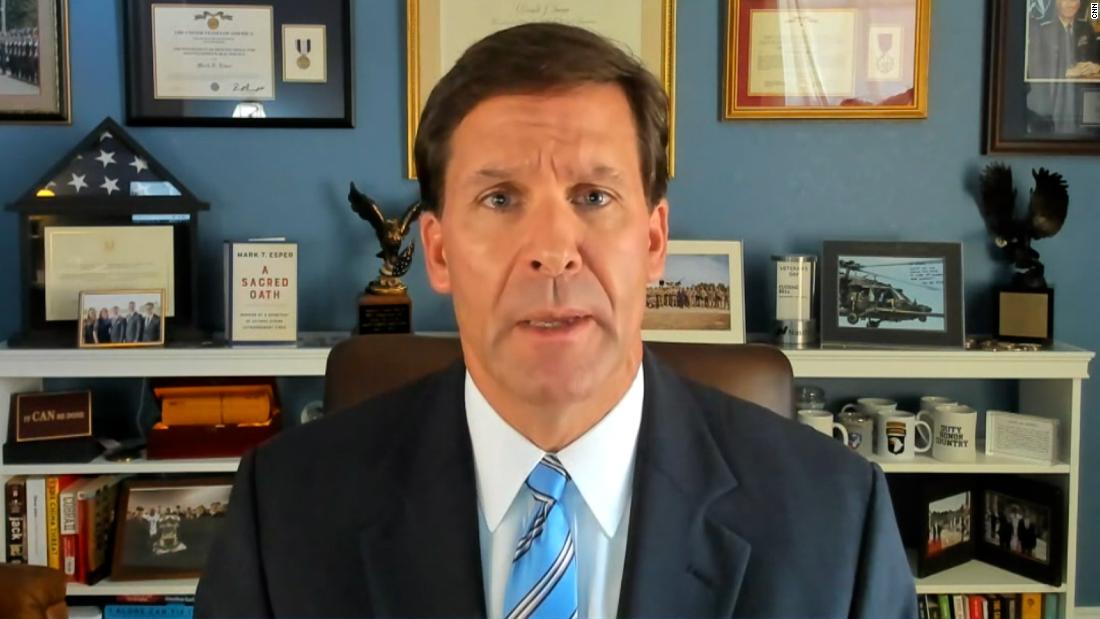Why We Need a Public Defender on the Supreme Court
While many former prosecutors for the federal government have served on the High Court, there has never been a public defender. Appointing DC Circuit Judge and former public defender Ketanji Brown Jackson would add the perspective of someone who understands the legal problems of people who cannot afford to pay a lawyer, writes the executive director of Partners for Justice.

Right now, the Supreme Court is in desperate need of a justice with professional training in seeing the humanity in everyone, not just people with money and power.
Judge Ketanji Brown Jackson’s experience as a public defender makes her the right pick for this moment.
Editor’s Note: Jackson, 51, joined the DC Circuit Court of Appeals in June, 2021, filling the seat left by Merrick Garland when he was named Attorney General. As an assistant federal public defender in Washington, D.C., she represented Guantanamo Bay detainee Khi Ali Gul. She has also served as vice chair of the U.S. Sentencing Commission.

Judge Ketanji Brown Jackson
At a time when the country is grappling with the effects of systemic racism on its legal system, and when the rights of people who are neither rich nor powerful seem as at risk at the Supreme Court than ever, Jackson’s work as a public defender is exactly the kind of background we need.
More than any other candidate reportedly under consideration, she has the experience needed to meet the moment.
Tasked with vigorously defending the rights of people accused of crimes who could not otherwise afford a lawyer, public defenders choose a job that requires them to think deeply about how to best hear people who are often silenced, of making judges and juries see the full humanity of everyone.
They see up close how factors like poverty, systemic racism, addiction, and a tattered social safety net come together to shape the lives of people who could not otherwise afford representation, and they see how our legal system commonly compounds those problems by further dehumanizing vulnerable people when they step into a courtroom.
As a public defender Jackson saw first-hand the way that the courts too often tell people who cannot afford high-priced lawyers that their voices should not matter. As an appellate public defender, Jackson worked to identify errors that had occurred during her clients’ trials and point them out to appeals courts.
In her most recent Senate confirmation hearing, she recalled being struck by how many of her clients simply did not understand what had happened during their trials .
“They had just been through the most consequential proceedings in their lives, and no one really explained to them what they were supposed to expect,” she said.
As a judge, she explained, she takes “extra care to communicate” with people accused of crimes in her courtroom: “I speak to them directly, not just to their lawyers, I use their names, and I explain every stage in the proceeding.”
Jackson’s public defender experience is desperately needed on a Supreme Court made up mostly of lawyers whose professional training is in understanding the legal challenges faced by the wealthy or the powerful.
While there are multiple former prosecutors and advocates for the federal government on the court, there has never been a public defender, and there has not been a criminal defense lawyer in decades.
While public defenders represent clients in criminal proceedings, the perspective of someone who understands the legal problems of people who cannot afford to pay a lawyer is undoubtedly needed in all areas of law.
People accused of crimes often get the worst treatment in our system, but anyone who might end up in court as a worker or as a consumer, also needs a judge committed to hearing the voices of everyone.
The value of public defense experience should not be a partisan issue. Working as a public defender distills and reflects a deep commitment to individual liberty, to the idea that the legal system must safeguard all Americans, not just those with resources, against government overreach.
By making real the Constitution’s guarantee that all Americans are entitled to a vigorous defense, public defenders display as deep a commitment as any group of lawyers in America to the promise of our founding document.
Based on his record in office so far, Biden seems to understand the particularly valuable experience public defenders bring. Perhaps unsurprisingly given his own public defense experience, Biden has appointed a record-breaking number of public defenders to other federal judgeships, including by elevating Jackson to the prestigious D.C. Circuit.
That work reflects his stated commitment to racial justice and basic fairness, and he should build on it with this appointment.
While no one Supreme Court justice will change the direction of the Supreme Court overnight, Jackson’s nomination would send an undeniable message to public defenders working across the country to protect the rights and elevate the humanity of all Americans.

Emily Galvin-Almanza
Public defenders work long hours with limited resources to protect the rights of their clients, and the current makeup of our Supreme Court tells them that our country values their work less than that of people representing the wealthiest corporations.
By appointing Jackson, Biden can say to the lawyers who speak for the silenced, and to everyone who has felt powerless or dehumanized when they step into a courtroom, that he sees and hears them too.
Emily Galvin-Almanza is the co-founder and Executive Director of Partners for Justice, a new model of collaborative public defense designed to empower public defenders nationwide.

 Landwebs
Landwebs 




















